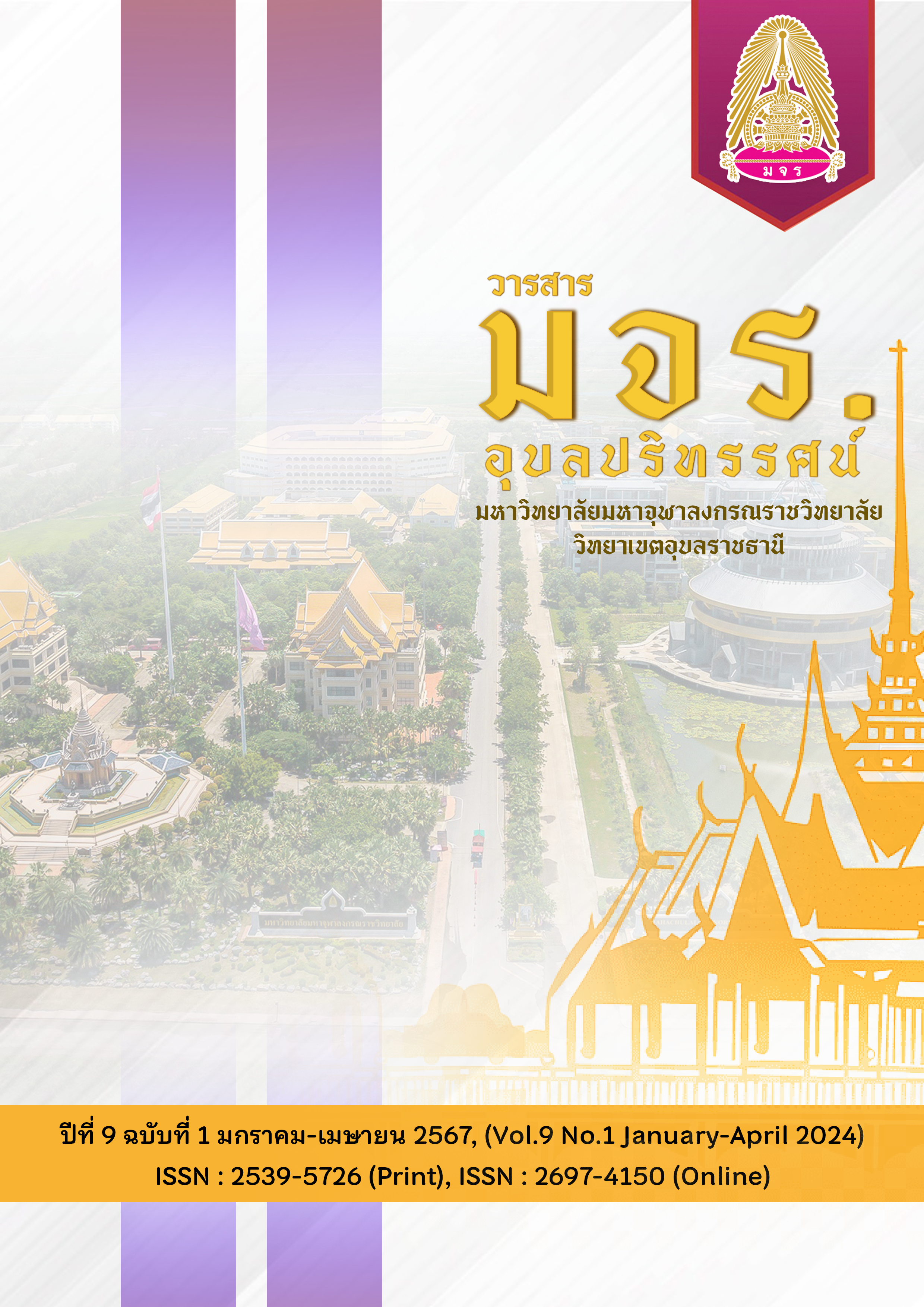RESEARCH ON THE INFLUENCE OF MARKETING INCENTIVES ON THE ONLINE IMPULSIVE PURCHASING INTENTION OF CONSUMER
Main Article Content
บทคัดย่อ
With China's economic development, residents' employment and income have gradually shown a steady growth trend. Residents' consumption choices have become more and more diverse, which is also very beneficial to stabilizing China's consumption growth. As the pace of China's economic development accelerates, domestic consumers' consumption concepts have undergone tremendous changes. In the consumer's consumption process, impulse purchasing is a common but special consumption method in the human shopping process. As consumers' consumption concepts and behaviors change, they are no longer restricted by purchase plans and financial resources, and they can relax and fully enjoy shopping. More and more consumers will make purchase decisions on the spot after comparing the marketing methods and efforts of various merchants, and the proportion of impulse purchases has greatly increased. At present, the study of impulsive purchasing behavior has become an important part of the research on consumer behavior issues in China and has attracted widespread attention from the academic community. Thus, this article explores the influencing factors and generation process of consumers' online impulse purchasing intention under marketing stimulation and proposes that marketing incentives affect consumers' impulse purchasing intentions by affecting their two emotions: perception and pleasure. The study adopted a questionnaire survey method for data collection. After testing the data, some hypotheses were supported. Therefore, it shows that marketing incentives has an impact on consumers’ online purchase intention. The research conclusions can help e-commerce companies further understand consumers' impulsive purchasing behavior, make full use of the impact of marketing incentives, and formulate more flexible and effective promotion strategies.
Article Details
เอกสารอ้างอิง
Adelaar, T., Chang, S., Lancendorfer, K. M., Lee, B., & Morimoto, M. (2003). Effects of media formats on emotions and impulse buying intent. Journal of information Technology, 18(4), 247-266.
Agee, T., & Martin, B. A. (2001). Planned or impulse purchases? How to create effective lnfomercials. Journal of Advertising Research, 41(6), 35-42.
Akram, U., Hui, P., Kaleem Khan, M., Tanveer, Y., Mehmood, K., & Ahmad, W. (2018). How website quality affects online impulse buying: Moderating effects of sales promotion and credit card use. Asia Pacific Journal of Marketing and Logistics, 30(1), 235-256.
Arnold, M. B. (1960). Emotion and personality.
Bagozzi, R. P. (1986). Attitude formation under the theory of reasoned action and a purposeful behaviour reformulation. British Journal of Social Psychology, 25(2), 95-107.
Bai Changhong & Qiu Qi. (2008). Analysis of influencing factors based on consumer pioneer brand advantages. Learning and Exploration (04), 145-147.
Beatty S. E.,Ferrell M. E. Impulse Buying: Modeling Its Precursors[J]. Journal of Retailing,1998,74( 2) : 169-191
Bellenger,D.N. and Korgaonkar,P.K. Profiling the recreational shoer[J]. Journal of Retailing, 1980,56(3 ):77-92.
Cunningham, M. R., Steinberg, J., & Grev, R. (1980). Wanting to and having to help: Separate motivations for positive mood and guilt-induced helping. Journal of personality and social psychology, 38(2), 181.
Derbaix, C., & Pham, M. T. (1991). Affective reactions to consumption situations: A pilot investigation. Journal of Economic Psychology, 12(2), 325-355.
Dittmar, H., Beattie, J., & Friese, S. (1996). Objects, decision considerations and self-image in men's and women's impulse purchases. Acta psychologica, 93(1-3), 187-206.
Donovan R. J.,RossiteR J. R. Store Atmosphere: An Environmental Psychology Approach[J]. Journal of Retailing,1982,58( 1) : 34-57
Dubé, L., & Menon, K. (2000). Multiple roles of consumption emotions in post‐purchase satisfaction with extended service transactions. International Journal of Service Industry Management, 11(3), 287-304.
Frijda N. H. Moods,Emotion Episodes,and Emotions[J]. Handbook of Emotions,1993: 381-403
Heilman, C. M., Nakamoto, K., & Rao, A. G. (2002). Pleasant surprises: Consumer response to unexpected in-store coupons. Journal of Marketing Research, 39(2), 242-252.
Jeon, J. O. (1990). An empirical investigation of the relationship between affective states, in-store browsing, and impulse buying. The University of Alabama.
Kahneman D, Tversky A. Prospect Theory: An analysis of decisions under risk [C], RePEc, 1979:263--291.
Katona G, Mueller E. A study of purchase decisions[J]. Consumer behavior: The dynamics of consumer reaction, 1955, 1: 30-87.
Lei Ling, Zhang Xiaojun, Wang Lili. Research on online impulse buying based on e-commerce marketing [J]. Business Research, 2012, (03): 103-108.
Loewenstein, G. (1996). Out of control: Visceral influences on behavior. Organizational behavior and human decision processes, 65(3), 272-292.
Mehrabian A, Russell J A. An approach to environmental psychology.[M]. MIT, 1980.
Parboteeah, D. V. (2005). A model of online impulse buying: An empirical study (Doctoral dissertation, Washington State University).
Rook D W, Fisher R J. Normative influences on impulsive buying behavior[J]. Journal of consumer research, 1995, 22(3): 305-313.
Sherman, E., Mathur, A., & Smith, R. B. (1997). Store environment and consumer purchase behavior: mediating role of consumer emotions. Psychology & Marketing, 14(4), 361-378.
Sinha, I., & Smith, M. F. (2000). Consumers' perceptions of promotional framing of price. Psychology & Marketing, 17(3), 257-275.
Stern H. The significance of impulse buying today[J]. The Journal of Marketing, 1962: 59-62.
Wirtz, J., Mattila, A. S., & Tan, R. L. (2000). The moderating role of target-arousal on the impact of affect on satisfaction—an examination in the context of service experiences. Journal of retailing, 76(3), 347-365.
Xu Haiqin (2020). Research on the antecedents and mechanisms of consumers’ online impulse buying in social business situations [D]. University of Science and Technology of China.


